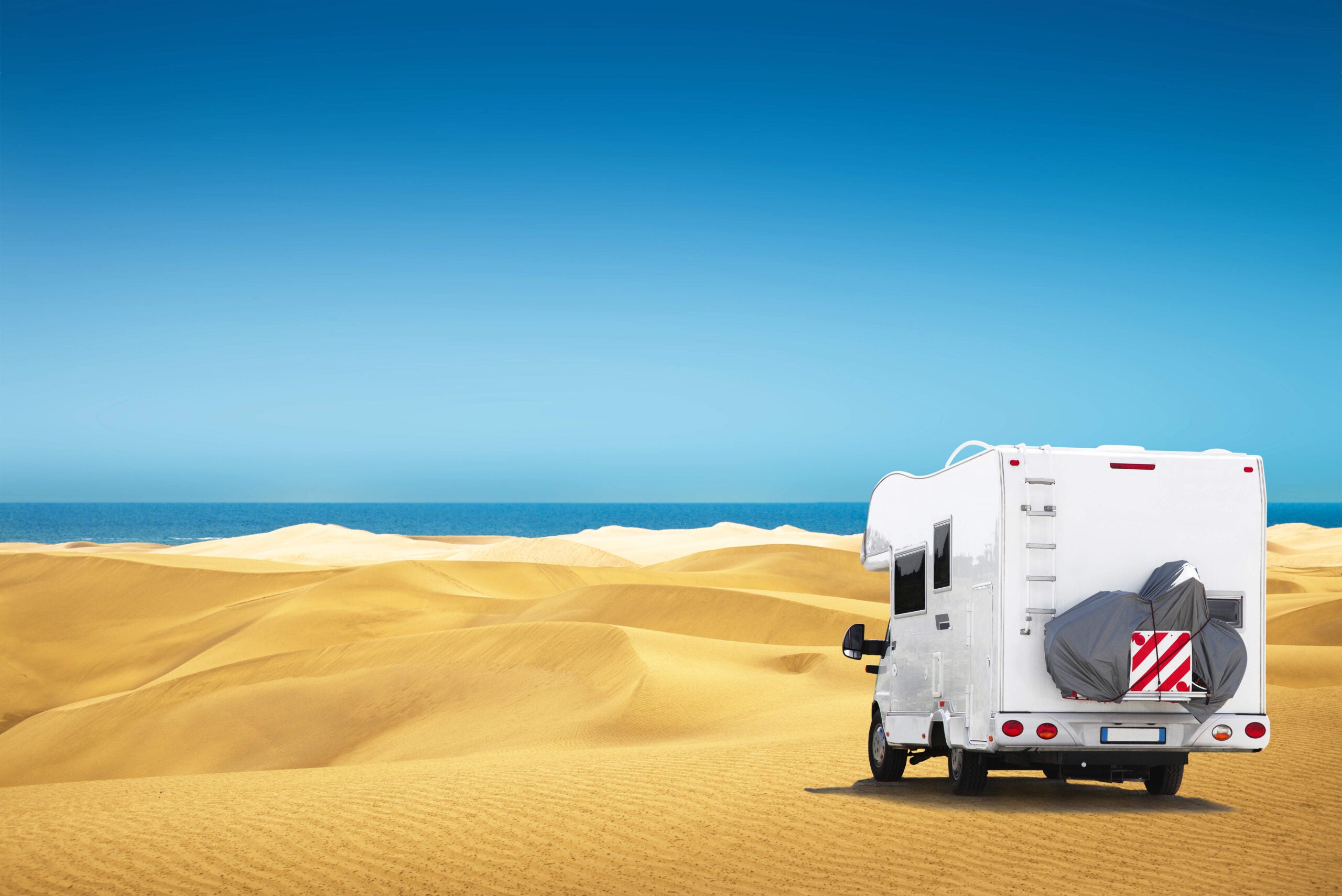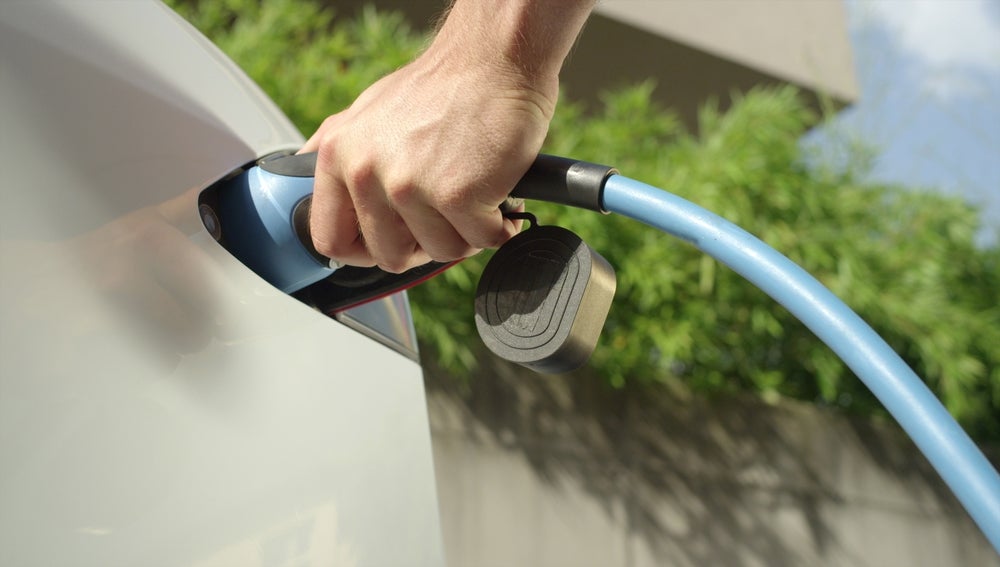
Thinking of caravans, motorhomes and recreational vehicles (RVs) can bring up any number of associations – many of which are less than positive. Chris Farnell puts the prejudices aside and finds a surprising field for potential growth.
Caravans might bring up memories of rainy holidays in Wales, or lengthy journeys on motorways across Europe.
They will also probably bring up memories of a cavalcade of old Jeremy Clarkson jokes. They are also an area that the motor finance industry has often regarded with some distrust.
“We can only lend up to 5% of our total book for caravans. At the moment, just over 2% of our book is caravans,” explains Billing Finance director Oliver Mackaness.
“When we started financing caravans, our bank required us to put our own money in first as proof of concept before it was happy to lend on them.” “There are still a lot of lenders who will not touch leisure products,” agrees Scott Talbot, Director of thecaravanfinancer.co.uk.
The reasons for that reluctance are not hard to work out, and they have nothing to do with the jokes on Top Gear. Caravans and motorhomes exist in an awkward part of the market where the stakes are high but the protections are nowhere near as secure as you might find in similarly priced markets such as prestige cars.

US Tariffs are shifting - will you react or anticipate?
Don’t let policy changes catch you off guard. Stay proactive with real-time data and expert analysis.
By GlobalData“Fairly obviously, this is not a prime vehicle: it’s a luxury vehicle,” Mackaness says. “We’re in the near-prime market, but when it comes to caravans we’re trying to get nearer to prime than with cars. If hard times come, customers stop paying for their caravan before they stop paying for their car.
“Caravans aren’t registered in the same way either; there’s a caravan equivalent for HPI, but it’s not as well known and they’re easier to hide or get rid of than cars.”
Julian Rance, motor finance director at Paragon, notes: “The car marketplace tends to be fast-paced and very transactional as, on the whole, most people buy a car as a necessity. But with leisure vehicles, it’s a lifestyle purchase – after all, a caravan, motorhome or RV is a specialist asset.
“That means that the pace of the transaction tends to be more relaxed and the customer usually wants to spend time choosing what meets the bespoke needs of them and their families.”
Rance continues: “The lending terms also tend to be longer. The maximum lending terms for cars and vans are typically five years, but in the leisure market, there is a longer ownership cycle, so we offer terms of up to 10 years.
“The reason for this is because they are used less than cars and hold their value better. Leisure vehicles are used more at weekends or for a holiday, rather than for the daily commute.”
RVs are a place where financiers face a mix of new challenges and opportunities, and the levels of commitment and risk vary wildly, as Talbot points out. “It differs massively,” he says.
“As a leisure product and not an essential day-to-day product, it’s important that targeting the right people through marketing is done correctly.
“The loans tend to be between £6,000 and £18,000 for caravans, or £25,000-plus for motorhomes. Due to the size of the loans, it’s important to be targeting the people with an interest in leisure and who also have disposable income.”
There are some common elements however. People buying caravans tend to be at the older end of the market, 35 or older for caravans, and over 40 for motorhomes – a very different demographic from the one you will see in your average car or van dealership.
At the same time, the caravans themselves can be older, with the lack of engine meaning lenders are often willing to relax their usual criteria. Some sub-markets, such as the static caravan sector, can bring complications with them.
Mackaness says: “Billing Finance is right next door to a really large caravan park and we did a lot of the financing there, but that was mainly for static caravans.
“The thing with static caravans is you really need a good agreement with the caravan park itself. We did have a good buyback agreement with this caravan park and built up quite a large book, but our average loan is £5,000 and these can come to £30,000.
However, despite the challenges, the performance of the caravan market is an unflashy but profitable arena for lenders.
“Arrears levels on caravans are similar to the rest of the book – there’s not much difference. In fact, the arrears levels are slightly better,” Mackaness continues.
“We like financing a few caravans as one of the little niches we explore into, but with motorhomes £30,000 doesn’t buy you very much. They’re much bigger tickets.”
A NEW FRONTIER
While this is a market that is already producing profitable results, and one where there is much potential for growth, there are barriers that the sector will have to break down to see it really reach its potential.
“For years, leisure finance has been dominated by dealer finance,” Talbot admits. “The main lender in the market has been Black Horse, writing prime to mid-prime business. Leisure products tend to attract an older generation who aren’t the ‘online generation’, so the norm is the same as it was in the car world 10 years ago: to go to a dealership and enquire about finance through the dealership direct.”
Part of the solution, Talbot believes, is to educate the dealerships on the wider array of options they can offer.
“We have found leisure dealerships to be very naive when it comes to finance. I have spoken to many motorhome and caravan dealerships around the UK who believe that they get 99% of their customers accepted with Black Horse and aren’t even aware that there are many more lenders in the market that could benefit the customer, and even themselves, when selling finance,” Talbot says.
“Educating dealerships that have been selling motorhomes and caravans for 25 years is difficult, as they have the attitude: ‘Why change something that isn’t broken?’ I believe the biggest issue is educating the dealerships about using brokers for the finance, as well as looking at other options for their customers.”
The ‘if it ain’t broke, don’t fix it’ attitude is also reflected in RV customers, who, as has already been mentioned, tend to be part of an older generation.
While the leisure vehicle sector is more than ripe for a shift into the online world, that will not happen without a little resistance.
“Reaching these customers from a marketing perspective as an online company is difficult. Social media, Google, email campaigns just will not get the customers in,” Talbot says.
“We are spending time with dealerships, educating them, expressing the need for them to open their options as the online presence grows or in five or 10 years’ time they will be left behind. We also advertise in ‘old ways’: newspapers, leaflets and so on.”
That is something Talbot believes will change, however. He predicts opportunities for the market sector in terms of dealerships taking on more lenders, using brokers and giving customers more choice when it comes to the products offered.
He also foresees an increase in the number of used leisure dealerships to offer more competition to give more options to consumers. “I believe the industry is moving more and more online,” he says.
There is one other factor that Talbot believes is a cause for optimism in the caravan, motorhome and RV sector. “As it gets more and more expensive to travel abroad or stay in hotels in the UK, people are happy to be able to travel around the UK in their own home on wheels,” he explains.
We have seen a large increase in applications for caravans this year, even in winter.”
A GROWING MARKET
Talbot is not alone in thinking like this, indeed it is a recurring theme with everyone Motor Finance talks to about the sector. “I think there’s quite a big market there: the ‘staycation’ trend is increasing,” agrees Mackaness.
“People like going for cheeky weekends off to the seaside. It’s a market that’ll increase even though caravans have quite a bad rap.” Rance also sees a great deal of potential in the sector.
“Paragon’s motor finance team has found this to be a buoyant market,” he notes. “This could be because the idea of staycations seems to be growing.
“There’s also been better weather, and people have greater freedom and flexibility over when they can take a few days off to jump in the caravan or motorhome and head off. It can be expensive to take a large family abroad, but leisure vehicles give customers the option to do multiple holidays at a lower cost over a long period.”
Paragon is moving to make the most of the growing opportunities in this marketplace by providing tailor-made products for the customers of this market sector.
Rance says: “As a specialist in niche lending channels, we have increased our exposure in this market and have a portfolio of bespoke products that respond to customers’ needs and make these vehicles more affordable by spreading the cost.
“We take pride in understanding specialist markets like leisure and, unlike many of our competitors, we give brokers and dealers direct access to underwriters to discuss the details, so we can understand the customer’s situation and use our underwriting skills to structure the right deal for them.”
Of course, the very factors that are making caravans a more sought-after holiday solution also bring other challenges to the sector, with so much of Brexit’s impact across many sectors still a mystery.
“Because this sector is about making a lifestyle purchase, Brexit, higher interest rates and a downturn in the economy could affect purchases,” Rance admits.
“That said, this scenario could also mean that people consider buying a caravan or motorhome that they can pay for over a decade as a more affordable option for holidays, which is why we offer flexible loans, up to 10-year lending terms and competitive rates.
“The government’s plans for a ban on diesel vehicles could also be a challenge for the industry as motorhomes are mostly fuelled by diesel, but this will evolve over time in a similar way to how commercial vehicles will need to adapt.”
On the whole, however, the forecast for this market sector is almost universally positive.
While previously many lenders have been cautious about the risks the caravan, motorhome and RV sectors present, and have wanted to avoid the unique challenges that this sector presents to financiers, that very reluctance, combined with a dire need for market alternatives, means the playing field is wide open for those willing to take the initiative.
“We see this market as growing, especially as people are changing their holiday choices with more flexible options to take a quick break for a few days. As a consequence, demand is increasing,” Rance explains.
“There are also better caravan parks and sites for leisure vehicles to stay at.”
Talbot predicts: “As years go on, there will be a greater move towards online finance. I believe the industry will grow as prices in the UK increase for holidaying abroad.”
Rance continues: “I think the future is bright as changing consumer habits are showing a trend towards staycations and an alternative type of holiday. In many ways, the uncertainty on the horizon with Brexit and the economy is likely to lead to further growth in this sector.”
Another factor will also benefit market: 20 years ago, caravans may have been an easy target for snarky television presenters, but even that is changing.
“Added to that are improvements being made to the quality and functionality of leisure vehicles,” Rance points out.
“These developments are leading to better showers, better televisions and other facilities that are making these vehicles more and more attractive to consumers.”
Maybe they are not so bad for a rainy weekend after all.







